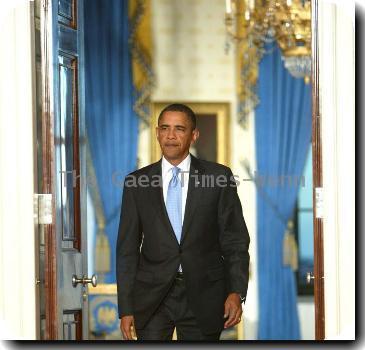Federal judge to decide whether Univ. of Wyo. can bar Bill Ayers from speaking
By Bob Moen, APMonday, April 26, 2010
Federal judge to decide lawsuit in Ayers case
CASPER, Wyo. — The dispute over the University of Wyoming’s decision to block 1960s radical William Ayers from speaking on campus is in the hands of a federal judge.
U.S. District Judge William Downes heard more than five hours of testimony and arguments Monday, then said he would rule Tuesday on Ayers’ quest to force the school to allow him to speak.
UW President Tom Buchanan testified that the decision to bar Ayers from speaking on campus Wednesday was based solely on the safety and security of Ayers, students and faculty. He said the types of threats the school received were unlike any he’d seen in his 30 years at UW, leading him to think violence was possible if the speech was allowed.
Ayers, a University of Illinois-Chicago education professor, co-founded an anti-war group that claimed responsibility for a series of nonfatal bombings to protest U.S. foreign policies during the Vietnam War era.
He originally was invited to speak at the university in Laramie on April 5 by the privately endowed UW Social Justice Research Center. But the center’s director, Franciso Rios, canceled the event after the invitation drew hundreds of protests.
UW student Meg Lanker then extended another invitation to Ayers, but the university said he was not allowed to speak on campus. Ayers and Lanker filed suit alleging UW violated their constitutional rights to free speech and assembly.
In court Monday, Lanker and an attorney for Ayers argued that the concerns about security were overblown and the university was more worried about loss of donations.
One of the donors who threatened to quit contributing recently gave about $2 million to the university, said Denver attorney David Lane.
“Overriding the hecklers’ veto is the big donors’ veto,” Lane said.
The attorney said Ayers was being blocked from the campus because of his ideas.
Ayers was a co-founder of Weather Underground, a radical anti-war group that claimed to be responsible for a series of bombings, including nonfatal explosions at the Pentagon and U.S. Capitol. Ayers was a fugitive for years but surrendered in 1980. Charges against him were dropped because of prosecutorial misconduct.
Before Barack Obama was elected president, he served with Ayers on the board of a Chicago charity, and Republican Sen. John McCain’s running mate, Sarah Palin, made it an issue in the 2008 campaign, accusing Obama of “palling around with terrorists.”
Obama has condemned Ayers’ radical activities, and there’s no evidence they ever were close friends or that Ayers advised Obama on policy.
Thomas Rice, the university’s attorney, said the decision to not allow Ayers to speak was about safety and wasn’t a “viewpoint-oriented decision.”
Ayers testified by videophone that he has received threats before speeches at other schools, but nothing has ever happened.
During Buchanan’s testimony, the judge asked the UW president whether he knew that threats of violence alone were not enough to curtail free speech. Buchanan responded: “No sir, I was not aware of that.”
If Ayers wins a preliminary injunction allowing him to talk on campus, he will discuss free speech, Lane said. In an off-campus speech Wednesday night, Ayers will discuss education.
Tags: Barack Obama, Casper, Higher Education, North America, Sarah Palin, United States, Wyoming

